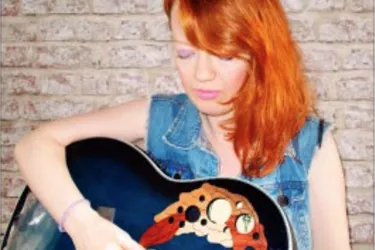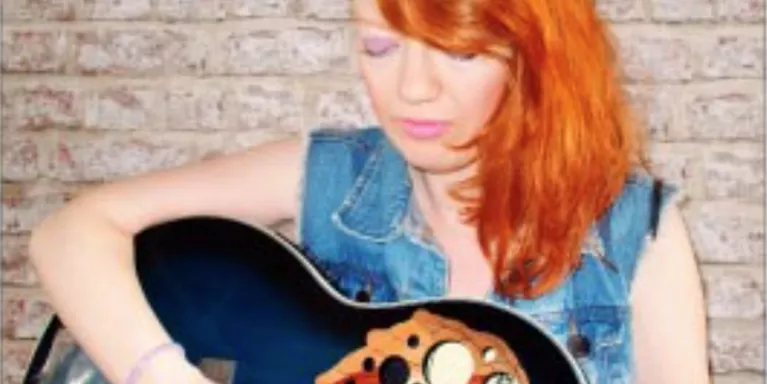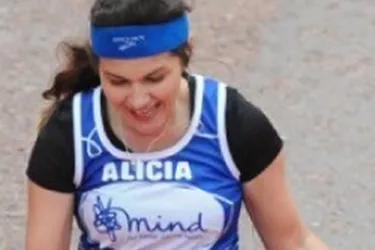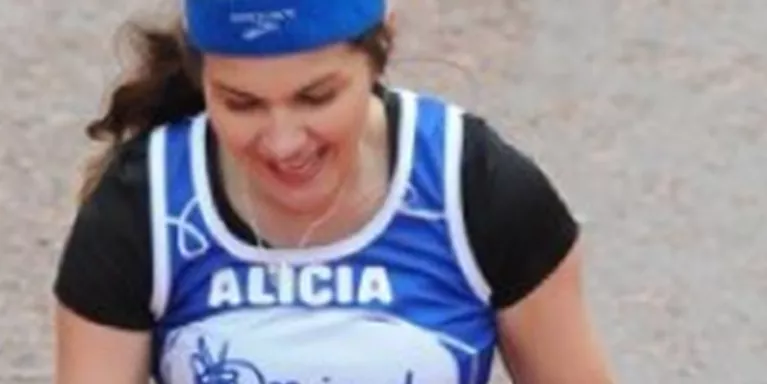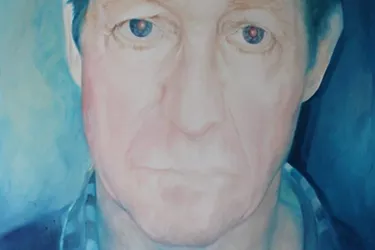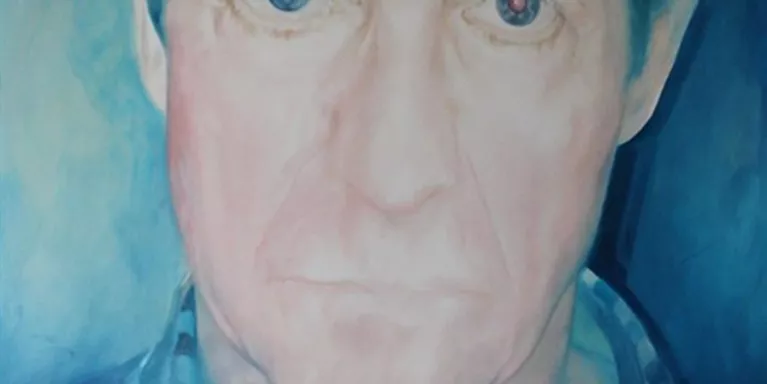Beauty pageants, depression and me
.Abbie writes about finding support and acceptance after depression in beauty pageants.
When I was 15 I was diagnosed with clinical depression – something I battled with until I was 19 years old. I’m 24 now and things are a lot better but there are times when I feel really low, which last a few days or a few weeks.
Before my mental health problems were diagnosed, my friends and family thought I was just lazy. I didn’t want to go college, meet friends or family, or leave the house. They also put it down to anaemia – an iron deficiency which can make you very tired.
"Even when my GP said it wasn’t laziness or anaemia, I found I still didn’t have the support I needed from doctors, family or friends to be able to feel better."
I’d regularly be told to “cheer up” by friends who didn’t understand, or people at school and college who were being deliberately nasty. Because of this I always found it easier to put on a front rather than explain to people what I was going through.
I felt like I was in a downward spiral. I felt very alone and like I didn’t want to be around anymore.
After I finished college the pressure started to lift, but I was left without a shred of confidence. I felt alone because I’d lost so many friends, I seriously hated the way I looked and just felt confused about life.
That’s when I competed in my first beauty pageant. I was very down and unhappy at the time, but when I read about UK pageants I felt a spark."
On that first day I didn’t know what to expect and was really apprehensive. But I didn’t need to be at all. As soon as I got there the other girls greeted me and helped me with catwalk training and anything else I was worried about.
When I first stepped on stage, waiting behind the curtains, I was very nervous and I couldn’t believe I was taking part. The audience was very supportive and cheered everyone. I didn’t expect to win anything; it was more for the experience to see if I could boost my confidence.
"After years of depression, I had never felt as confident as I did in that pageant."
I’d spent so many years in the negativity of depression, and pageants came into my life like a bright light. They gave me something to focus on as I was busy working towards goals, public appearances, raising money and helping others.
Quite a few girls enter pageants for similar reasons to me – to boost their confidence, raise awareness of illnesses and fundraise for charity. I have made friends for life and now have some wonderful people to chat to if I have an off day or feel low.
One pageant I particularly enjoyed competing in was Miss Sensational UK. Romy, the director, chose to support Mind through the pageant and I was so happy to be able to support a cause I could relate to.
Together we raised over £1700 last year. I held an online photo pageant for people of any age, race, ability, body type or gender. I also held a local raffle which raised nearly £200.
The other contestants raised money by holding their own pageants, gala balls, fun runs, quiz nights and cake sales.
"People don’t realise how much charity work happens in beauty pageants – they’re about much more than parading on stage and winning awards."
I raised nearly £300 last year and I want to top that this year. I will be competing again in Miss Sensational UK on 2 December 2017 in Guildford, raising money once again for Mind.
Looking back now, I never dreamed of doing anything like this, especially when my depression was at its worst. I had no confidence or self-belief. Now I want to share my experience to help others, as talking has such an important role in recovery.


Information and support
When you’re living with a mental health problem, or supporting someone who is, having access to the right information - about a condition, treatment options, or practical issues - is vital. Visit our information pages to find out more.
Share your story with others
Blogs and stories can show that people with mental health problems are cared about, understood and listened to. We can use it to challenge the status quo and change attitudes.












